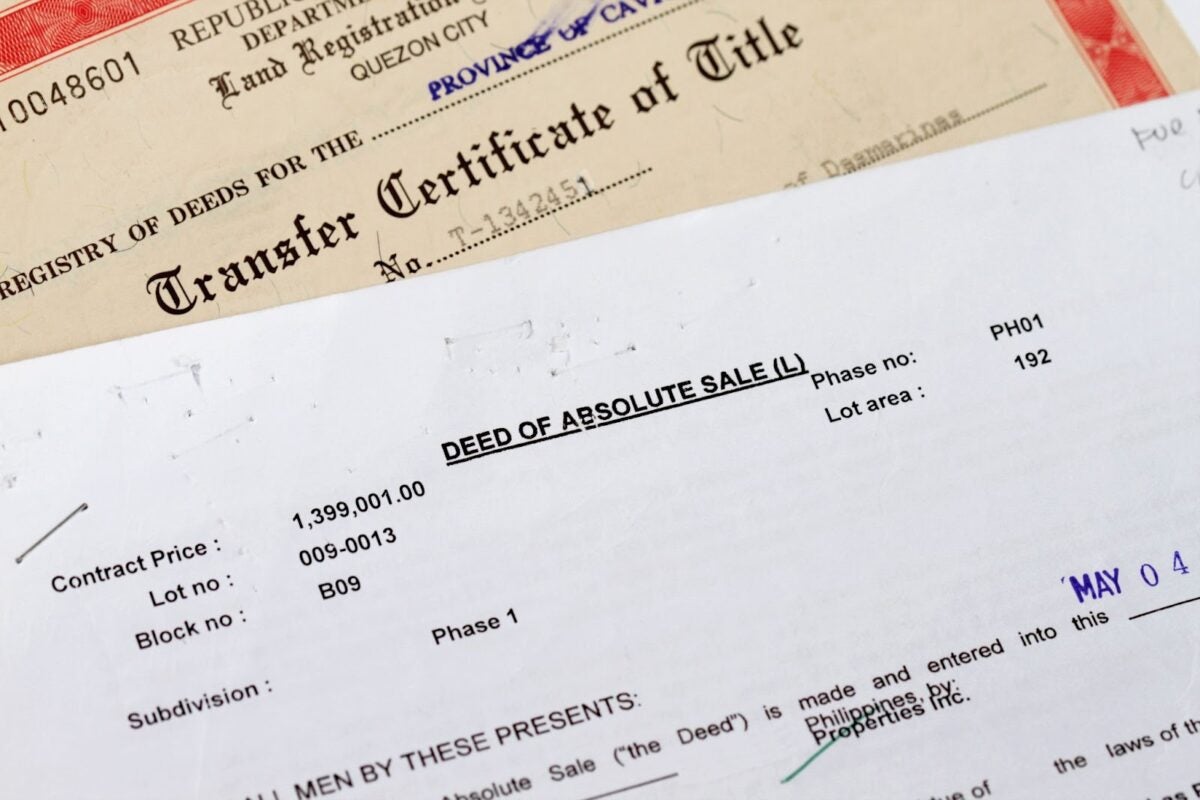Are you interested in the real estate industry but don’t have a license (yet 😉)? That’s ok! There are still plenty of jobs out there that allow you to work with homeowners and properties that don’t involve you as a licensed salesperson or broker. So, get your resume ready as I go through the options for real estate jobs without a license that are available to you.
1. Home Stager
-
Average salary: $70,266 per year
-
Required skills: Art, strong aesthetics, decorating, design, technology, and software

As a home stager, your primary role is to make homes appealing to potential buyers. But you can serve a wide array of clients, from homeowners and real estate professionals to TV and movie sets. You can rent or buy decor to stage vacant homes or stage using the homeowner’s existing furnishings. If you’re creative and have strong aesthetics, knowing how to choose complementary colors and arrange furnishings around a focal point, you’ll have fun working in this real estate job without a license.
In addition, modern virtual staging software is available as an alternative, creating realistic and style-matched room layouts. If you’re tech-savvy and artistic, searching for roles at virtual staging companies is an option, too. Many in this field pursue formal home staging or interior design education, but natural talent coupled with an apprenticeship can lead to a successful home staging career.
2. Title Examiner
-
Average salary: $51,098 per year
-
Required skills: Detail-oriented, meticulous research, strong communicator, problem-solver, real estate deed laws

Title examination is an excellent job in real estate that doesn’t require a license for history buffs and would-be archeologists who love digging into historical property records and examining past property transfers, deeds, liens, and boundaries. Uncover historical ownership disputes, encumbrances, incorrect deed recordings, and anything preventing real estate transfers to new owners.
You’ll need keen attention to detail and proficient research skills to excel in this career. Knowing the title insurance requirements for your home state is also essential. After unearthing title histories, you will report your findings to the lenders, home buyers, sellers, real estate agents, and attorneys involved in the home sale. After the closing, you head over to the local registry of deeds and record the new deed.
3. Real Estate Investor
-
Average salary: $86,796 per year
-
Required skills: Strong knowledge of real estate, finance, business development, property valuation, negotiating, property management, landlord-tenant laws, local, state, and federal housing laws

To generate income, a real estate investor must locate and evaluate income-producing properties to buy. You must understand real estate financing, calculations, and market trends, and depending on the type of investing you choose, you will also need to be familiar with contractors, property managers, attorneys, real estate agents, etc.
Excelling in this real estate job that doesn’t require a license does, however, require real estate knowledge about the market and how to assess income-generating properties. Negotiation skills, familiarity with housing laws, and financial metrics (e.g., cap rate, gross rent multiplier, and return on investment) are essential to sidestep costly errors. Additionally, knowledge of real estate financing acumen—from hard money loans to conventional loans—is key. Getting started is challenging, but it is definitely a lucrative career if you stick to it.
4. Real Estate Appraiser
-
Average salary: $91,772 per year
-
Required skills: Math, detail-oriented, research, and analytical thinking

Your role as a real estate appraiser is to gather property data and create comprehensive reports for homebuyers. These reports will determine the property’s fair market value for new mortgages and refinancing. It’s similar but more in-depth than a comparative market analysis (CMA).
As an appraiser, you’ll assess property values for lenders, banks, government agencies, and property owners independently or with an appraisal company. The job involves comparing the subject property with similar ones in the area and adjusting the value based on differences to determine its fair market value. It is suited for those with strong analytical skills. It’s one of the excellent real estate career paths without a license if you prefer a flexible job with fieldwork and office work.
5. Real Estate Assistant
-
Average salary: $48,610 per year (entry-level)
-
Required skills: Office administration, technology, real estate knowledge, basic math, communication, and multitasking

This real estate job without a license requires computer and technology skills, scheduling, lead generation, marketing, and organization. As a real estate assistant, you can find work with brokerages, teams, or real estate agents. Since you would talk to customers directly, being friendly and communicating well is important.
Confidentiality is also key because of the nature of the documents handled. If you’ve worked as an administrative assistant before, that’s a plus. This real estate career is great for people who like a busy office and are good at multitasking.
6. General Contractor
-
Average salary: $69,730 per year
-
Required skills: Time and project management, math, reading blueprints, carpentry, supervisory, and people skills

As a general contractor, you’ll coordinate and oversee large and small construction projects, from kitchen renovations to entire residential and commercial subdivisions. It involves coordinating the delivery of building materials, estimating project scope and costs, and supervising a crew of subcontractors and employees.
This career in real estate is perfect if you are organized, detail-focused, and have strong communication and leadership skills. In some places, passing a licensing exam is required. Experience and a license are vital because you work with critical systems like electricity and plumbing, ensuring safety and avoiding damage. Building permits and compliance with laws and codes are necessary before starting projects. You’ll work with architects, create invoices, and collect payments, often using software to plan projects and streamline work.
7. Architect
-
Average salary: $128,756 per year
-
Required skills: Technical design, computer-aided design (CAD), math, creating and reading blueprints, building and construction, math, legal, problem-solving, communication, and drawing

Architecture is a front-facing role where you will meet with customers, prepare scaled drawings, draft structures and specs, and manage and oversee projects like homes, buildings, and structures. It involves using computer-aided design (CAD) software to create your blueprints and designs based on input from your clients. In addition to computer-drawn designs, you will need to draft by hand during the conceptual stages of your design.
Being an architect does not require a real estate license, but it does require proficiency in geometry, algebra, and trigonometry to create designs and use software. You need to be detail-oriented to ensure designs are safe and stable. It’s a long journey, taking around 10 to 11 years, starting with a five-year bachelor’s degree in architecture, followed by up to five years of a master’s degree, and including a three-year internship. To officially become an architect, you must pass the Architect Registration Examination. If you’re a person who loves school, this could be the right job for you.
8. Real Estate Photographer
-
Average salary: $62,338 per year
-
Required skills: Technology, photography, design, camera equipment

In this career, you will take pictures to capture properties’ interior and exterior aesthetics in your photos or videos and virtual tours. To make the images pop, use photographic equipment and strategic lighting to highlight the home’s best features. Filters and photo editing software are needed to adjust images during and after your photo shoot. Your real estate agent clients want excellent images and quick turnaround, so they can get them uploaded to their online real estate listings and the Multiple Listing Service (MLS).
This could be a great choice if you enjoy photography, interior design, and browsing real estate listings. It’s a unique role in real estate that lets you work with homeowners and tour homes. Good photos are key to selling properties online, so practicing your photography skills is important. This real estate career path offers a flexible schedule and work environment, mixing field and office work.
9. Land Developer
-
Average salary: $84,748 per year
-
Required skills: Finance, accounting, real estate, people and project, management, building and construction, zoning laws

This career in real estate seeks people who can start with raw land and plan what will be built on it. You will design and arrange where utilities will go and add streets, building lots, and sidewalks to your designs. You’ll also work with general contractors and oversee commercial, residential, and industrial project constructions. When projects are complete, you list and sell them or hire a real estate agent.
You need strong people management, financial, business, and analytical skills to succeed in this real estate career. You’ll work closely with architects and builders to bring the project to fruition, so it requires being a team player. While there’s no set educational path for real estate developers, many have civil engineering, real estate, or business degrees. Some also have a Master of Business Administration (MBA), and a real estate license may be required in some states.
10. Real Estate Attorney
-
Average salary: $140,845 per year
-
Required skills: Critical thinking, negotiation, writing, complex problem solving, extensive reading, research, analytical, detail-oriented, persuasive communication

Suppose you want a career as a real estate attorney. In that case, your job is to prepare and record deeds, perform title searches, arrange real estate closing documents, settle real estate disputes, write leases and eviction notices, and represent your clients in court. You’ll advise homebuyers, sellers, and businesses and work for banks, lenders, insurance companies, and sometimes real estate agents.
This career requires a lot of research and knowledge of real estate and local, state, and federal laws. You can work independently or with a firm. This role involves drafting documents for property transactions and teaching law. Starting this career takes about seven years of education: four years for a bachelor’s degree and three years for a law degree (J.D.). Afterward, you need to pass the bar exam. This real estate career path is a good fit if you enjoy extensive education and have strong analytical and negotiation skills.
11. Home Inspector
-
Average salary:
-
Required skills: Communication, ability to meet deadlines, and having worked in trades helps

If you’re exploring careers in real estate besides sales and understand a home’s mechanical functions, a career as a home inspector might be a good fit for you. Home inspectors are hired to inspect properties for home buyers as part of a real estate purchase agreement. Homeowners occasionally hire inspectors to fix any deferred maintenance before selling their houses.
In your home inspector career, you’ll inspect properties from top to bottom, identifying any mechanical or structural issues that need repair. After the inspection, you’ll prepare a report for your clients, including safety issues and general repairs, and answer any questions homeowners may have about the report.
Training involves 60 to 150 hours of education and an apprenticeship required by your state. This real estate job that requires no license is well-suited for those with a background in trades like carpentry or electrical work, and it’s ideal for detail-oriented individuals who like working with people and identifying repair needs.
12. Mortgage Broker or Loan Officer
-
Average salary: $87,416 per year
-
Required skills: Problem-solving, interpersonal, critical thinking, understanding laws and regulations

Mortgage brokers and loan officers are mortgage loan originators (MLO) who gather information and guide buyers and investors through getting a mortgage to purchase properties. Loan originators are bank or lender employees, and a mortgage broker works independently or for a mortgage brokerage. Both assist consumers with completing a loan application, securing financing, and closing on their properties.
As a loan officer or mortgage broker, you help clients find the best mortgage rates and programs by comparing rates from various lenders. Mortgage brokers earn commission from closings, while loan officers receive a salary from their institutions. This role demands knowledge of real estate finance and lending laws, and involves evaluating financial backgrounds and property values. This career requires meticulous attention to detail and staying informed about loan options to recommend the ideal mortgage solutions.
13. Real Estate Marketing Manager
-
Average salary: $83,488 per year
-
Required skills: Attention to detail, creativity, graphic design, wordsmith, technology, data analysis and analytics, project management, communication, curiosity

Real estate marketing managers plan and execute projects to generate buyer and seller leads and promote real estate agents, teams, and brokerage brands. In this real estate career, you’ll create and design promotional campaigns and decide on ad placements, such as social media, e-mail, agent websites, television, radio, billboards, and print materials.
As a marketing manager, you’ll work independently or have a team to delegate the project’s tasks. This role is a good fit for creative individuals skilled in communicating and understanding consumer behavior. You’ll often rely on technology, graphic design, and data analysis to create the best marketing message for your agents.
14. Notary Public
-
Average salary: $64,777 per year
-
Required skills: Understand deeds and legal documents, computer literacy, people skills

A notary public, or notary, is an official who is an impartial witness to clients signing essential documents like leases, mortgage documents, and deeds. You are responsible for verifying their identification, witnessing their signatures on the documents, and guaranteeing they are not fraudulent.
This role suits those seeking flexible work, a side hustle, or a full-time real estate job without a license, especially if they are organized and detail-oriented, with the ability to understand legal documents. Notaries can work independently or for real estate agencies, financial institutions, or government agencies. In some states, becoming a notary requires completing a course, passing an exam, filing state paperwork, and obtaining a notary stamp and journal to record notarial acts.
15. Land Surveyor
-
Average salary: $74,746 per year
-
Required skills: Detail-oriented, communication, physical stamina, visualization, problem-solving, communication

Land surveyors determine property lines and mark their boundaries. They use tools to measure angles and distances between the land’s surface and above and below. They provide data on the contours and shapes of the land for real estate construction projects. Real estate boundaries are recorded in deeds and other documents that can be used in property dispute court cases.
Becoming a land surveyor involves outdoor work in various weather conditions and terrain. It requires stamina, attention to detail, strong communication, and the ability to visualize future structures on empty land. Before getting licensed, most states require a four-year apprenticeship with a licensed surveyor, licensing education that differs by state, passing two exams, and meeting continuing education requirements for license renewal. Surveyors are crucial for locating land boundaries and overseeing construction and resource extraction sites.
Bringing It All Together
When most people think, “I want to go into real estate,” they think real estate agent. But as you can see, there are lots of real estate jobs you can get without a license. Think about your skills and what role can complement your specific skills. Then send out those applications! We’re wishing you luck!









Add comment